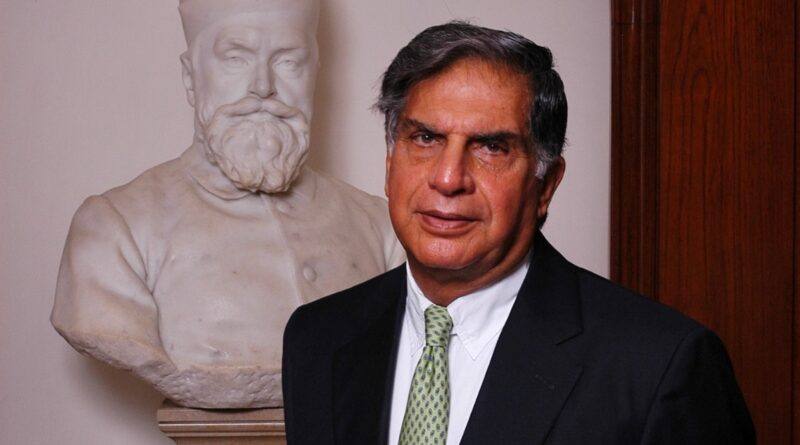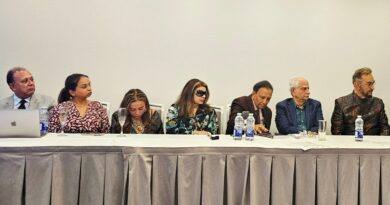Preservation Of The Art And Cultural Heritage: Tata’s Better Ways
Preservation of Traditional Arts, Crafts, and Cultural Heritage
Numerous Tata corporations and Tata Trusts have undertaken conservation initiatives in the areas of wildlife, ecology, and art and culture. These efforts have resulted in a variety of programs and projects that have a noticeable impact on various communities and regions. The article describes the locations and methods by which various efforts have gained traction.
Even in its ideal state, society is little more than a jungle in the absence of culture and the relative freedom it entails. For this reason, any genuine work of art is a gift to the future. The Algerian-French writer and philosopher Albert Camus’s words have a clear meaning, as do the freedoms that are fuelled by art and culture, the bonds that they foster between people, and the wonder that they can arouse in people from different backgrounds and ethnicities.
Every great work of art and the cultures from which they originate contain elements of the mystical. The knowledge, support, and encouragement needed to prevent such magic from being lost to future generations due to neglect and indifference are far less common. As modernity continues to advance, this is a serious concern. It serves as a catalyst for projects like the ones that many Tata organisations are assiduously pursuing in a variety of fields, including the preservation of traditional arts and crafts, the restoration of architectural masterpieces, and the resuscitation of musical institutions and genres.
TRIBAL INSTINCT
Tata Steel, India’s Jharkhand and Odisha
The Tribal Culture Society was established by Tata Steel in 1993 with the goal of reviving and conserving the customs and culture of the numerous tribal people that reside close to and around its facilities in eastern India’s Jharkhand and Odisha states. In addition to creating employment opportunities for tribespeople, the society’s activities focus on conserving tribal cultural traditions in language, music, and sports (see Tradition and the past gain a timely boost on page 94). In addition to hosting Samvaad, an annual assembly of tribal people from all over India, the corporation sponsors a Tribal Culture Centre that promotes tribal handicrafts and lifestyle products. Images from Samvaad 2016’s opening can be seen on the right and below. Members of the Rathwa tribe from Gujarat, India, are shown performing during the event on the page before this one.
IN THE HERITAGE: HISTORY
Tata Trusts, India, Manipal, Hyderabad, and Delhi
One of Tata Trusts’ recurring themes has been supporting the preservation and repair of historic sites and monuments. Through its conservation program, it supports the preservation and protection of monuments and other historic assets as well as the improvement of public access to and use of the land’s cultural heritage. The preservation of Hyderabad’s Qutb Shahi Heritage Park, the establishment of the Manipal Heritage Village (above), and the restoration of the Mughal emperor Humayun’s 16th-century mausoleum in Delhi have all benefited from this kind of support.
THE DECIBELS OF TRADITION
Tata Trusts, India’s Ahmedabad and Kutch
India’s cultural legacy has always been based on music, and traditional performing arts are an essential component of that culture. As new media and more modern forms of entertainment gain traction in popular culture, these arts have lost support and sponsorship. Tata Trusts’ performing arts initiative supports artists in theatre, dance, and traditional music. The endeavour to revitalise the musical customs of the Kutch region and the Saptak School of Music in Ahmedabad, Gujarat, are two examples.
AVOIDING FADING
Tata Trusts, India’s Chennai and Kolkata
A lesser-known aspect of Tata Trusts’ conservation strategy is the preservation of manuscripts and records that are culturally significant. This is particularly crucial when considering India, a nation that appears to have little interest in keeping historical written archives in order. However, this reality is shifting as government organisations and organisations like Tata Trusts collaborate to preserve and restore ancient manuscripts and scripts. The Trusts have taken steps in this area, such as digitising research materials at Jadavpur University in Kolkata, restoring a manuscript of the Hindu epic Ramayana from the 17th century, and digitising materials at the Roja Muthiah Research Library in Chennai, which houses about 300,000 volumes of Tamil books, journals, and newspapers.
GREATER SAGE GROUSE
THEATRE OF SKILLS
Tamil Nadu and Karnataka, India’s Titan Company
Wyoming, USA: Tata Chemicals North America
Since its founding, Titan Company has made an effort to establish meaningful connections with the community by implementing well-thought-out projects in several fields. In terms of conservation, it has been supporting the revival of the age-old hand embroidery technique used in Tamil Nadu’s Dharmapuri area and promoting theatre as an art form through a program that has been implemented throughout Karnataka. Through an artists’ association, rural women have been inspired to revive the beautiful craft of hand embroidery as part of the Dharmapuri initiative. Through a variety of strategies and initiatives, the theatre effort Ranga Shankara seeks to spread the art form among young people.
CREATING A FUTURE
All throughout India, Tata Trusts
With almost 7 million households employed, the crafts industry is India’s second-largest employer after agriculture. These families face a dismal future as they struggle to find clients and have little capacity to produce high-quality, market-driven artefacts and other items. In order to address these problems, Tata Trusts’ crafts-based livelihood program aims to revive dying crafts through pilot design projects, quality assurance, technology utilisation, and connecting craftspeople with both local and international markets. Establishing craft design and innovation hubs that can provide craft communities a variety of inputs will be made possible by the knowledge gathered from the pilot models.
Tata Trusts’ support of tribal groups in South Odisha’s Dokra clusters is a prime example of how to revive craft traditions while tying them to revenue generating. One goal is to provide these communities with the design and marketing tools they need to enhance their metalworking ability. The Dokra craftspeople reside in isolated places. Being far from the market reduces their negotiating strength, makes them heavily reliant on dealers, and ultimately pushes them away from a generation-old skill. By providing craftspeople with extensive marketing connections, design skills, training, and technological support, Tata Trusts hopes to improve this situation. Most importantly, the objective is to eventually make the program self-sustaining.
MUSIC AS AN ELIXIR
India’s Tata Capital
Tata Capital has made a significant contribution to the mainstreaming of Indian classical music. The corporation is supporting performers and musical traditions as part of its Do Right campaign. The program gives both seasoned and up-and-coming musicians a stage on which to display their skills. Zakir Hussain, Amjad Ali Khan, Vikku Vinayakram, Shankar Mahadevan, and Shivkumar Sharma, along with his son Rahul (shown below on the left with his father), are among the well-known performers who have participated in the event.
A WEAVE OF TIME
Madhya Pradesh, India’s Tata Trusts
According to India’s 1995–1996 handloom census, 6.5 million persons were involved in weaving and related occupations. According to the 2009–10 census, this number dropped to 4.3 million, indicating a migration that is both concerning and heartbreaking. In Maheshwar, in the Khargone district of Madhya Pradesh, the Tata Trusts-supported Handloom School is an attempt to halt a decline that has seen the nation lose a large number of handloom weavers to low-paying jobs and the deterioration of a rich and distinctive handloom tradition.
The school serves as the first “entrepreneur incubator for young weavers” in India. Its main goal is to provide young weavers the knowledge and expertise they need to succeed as entrepreneurs in the fields of design, marketing, and finance.




